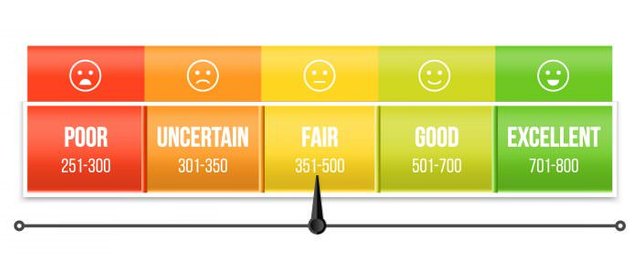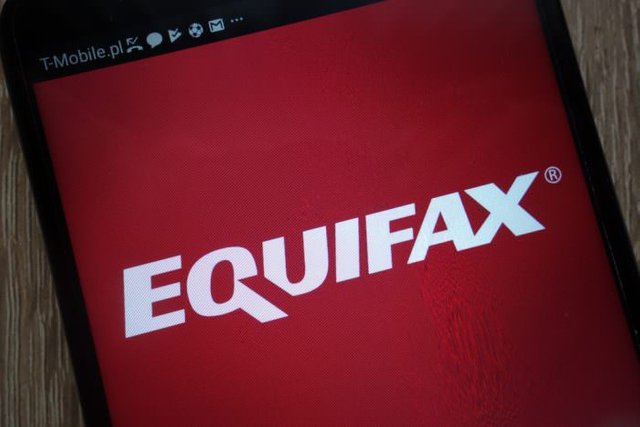Could blockchain kill off the credit check companies? Players such as Experian and Equifax, highly exposed to hacking risk, stockpile data about anyone who pays tax and has a pulse – that’s 32% of the world’s total adult population, according World Bank figures from 2017.
This data is stored centrally. But when hackers get their hands on it, you have to ask: what’s the point of credit check agencies if they can’t protect us from theft? Aggregating a ton of once-private, personal information in one place doesn’t sound the bright idea it was.
Crash and burn
For many years credit check companies surfed a rising tide of consumerism – houses, cars, mobile phone contracts, credit cards and healthcare – while Western wages stagnated and banks and other credit players cooked up new ways to incentivize a hard-pressed public to borrow and spend.

Credit check agencies had a role in the crash – a fact often overlooked
Going further back, they also contributed to the 2008 crash says Erica Stanford, cryptocurrency investor and co-founder of CryptoCurrencySimplified.com. “Ratings agencies gave artificially high ratings to subprime assets and borrowers to create more loans and extract more profit from mortgage backed securities.”
This led to people taking out loans they couldn’t afford – which led to the collapse of the market and widespread repossessions. “Ratings agencies were able to get away with this by obscuring data, which would not be possible with a transparent and continuously auditable blockchain,” she maintains.
Risk up

Stanford – wary of credit check players
A decade on the business risks for legacy credit check players are rising as their ability to keep their security together recedes: in September 2017 US credit check company Equifax admitted that the financial records of 146 million customers, or 44.6% of the US 325.7 million population (2017 data), got stolen on 29 July.
Not all the US population are legal adults so the Equifax numbers were worse (“a historic data disaster” – US Senator Richard Blumenthal) than advertised. The hack also sucked in Brits and Canadians too.
After the breach dump was exposed Equifax’s boss Richard Smith got despatched (though not immediately, the company’s chief information officer and chief security officer went first) and the company’s share price crashed from around $140 to $93 (the company’s share price was barely touching $22 post 2008 crash).

Too many ratings – which can have powerful consequences – are wide of the mark
Meanwhile London-based Experian – last year the 15th most profitable FTSE 100 operator, according to the FT – is thought to rely on more than 50% of its revenues from the US. You don’t need an MBA from Harvard Business School to see some clear high-risk issues – albeit after a highly profitable run.
Unacceptable behaviour
Dima Okhrimchuk, CEO of London-based fintech company Platio, says a blockchain credit solution in contrast is incontestably more resilient than anything offered by Experian and Equifax.

Don’t slip: you may not control your data
Okhrimchuk has worked across investment banks and venture capital funds, plus tech companies in Silicon Valley and the CIS. “The current incumbents have become complacent,” he told OpenLedger. “They have relied on their dominant position to get away with commercial behaviours that we just wouldn’t accept outside this industry.”
Regular mistakes are made in third party credit history records and rectifying them is difficult and time consuming he says. But blockchain already offers strong KYC (Know Your Customer) and anti-money laundering procedures.
“We expect a blockchain-based identity system for credit verification to emerge in the next three years,” Okhrimchuk went on. “Names such as Civic and Bloom are already innovating the necessary technology.” These solutions will open up the credit market to those excluded now he predicts.
But before that further work is needed. When you fill an application for a loan, you disclose a lot of private information – your income, any properties you might own. Perhaps even a conviction. “The bank or a third party is obliged to keep this information safe,” reminds Ruslan Mikhailov, head of market research and trading at Tradingene.

Mikhailov: how much is private?
“Can you imagine what happens if such information becomes public? Everyone would know their colleagues’ salaries, what they own, what loan they took, whether they paid it, whether any of their relatives had any legal issues…the list goes on.”
Your privates on view
There are only a handful of credit legacy players which means high barriers to entry for new entrants. Part of that’s down to high levels of compliance. Because most agency revenues come from the banks those are then offloaded onto customers in the form of higher interest rates.
Last September Verge writer Russell Brandom wrote that the average consumer has little awareness of how their deeply private credit profile – a growing market value is attached to it – is milked for corporate gain. “I’m sure Facebook, Google, and PayPal would all love to take over from the credit bureaus,” he said.
“Some people,” he went on, “will tell you we should put it all on a blockchain, decentralizing the system and querying discrete pieces of information as needed. New solutions bring new problems. There’s no perfect answer to any of it.”

The credit agencies will buy in data about you to ensure they get a full picture – even if it’s inaccurate
Crass lack of respect
So, a re-think is needed. The big agencies see their clients, in the main, as large businesses needing an on-demand view for a fee of potential, but very small, new risk. It sounds reasonable enough. If you’re going to lend someone money it’s a good idea to know they’ve spent, or saved, in the past.
The credit check agencies, then, are happy to pre-sniff multiple piles of financial underwear without consent or thought for privacy – their data is pulled from public sources or privately bought in – to monetise a view: clean, dirty or in-between.
But they’re smart enough to know when to re-invent themselves as a more respectful proposition, should blockchain give them a fright. That fright isn’t quite articulated. But there’s a growing buzz.
Three powerful arguments for disruption:
- No central point of failure means a blockchain solution should be secure. With no intermediaries to pay database admin the cost of data curation may wither, “meaning lenders access the data without having to pay the ‘rent’ to credit agencies,” Alexander Dunaev in Finance Monthly, January 2018, points out
- If data is returned to the owner adds Dunaev “they will have constant and free access to their own financial data, which is rightfully theirs to own, and potentially monetise without the risk of identity theft and data leakages”
- Credit check companies can have the last say on whether you can get a job or buy a house. When they goof, they damage lives. Retired or dead, Experian or Equifax may still control your numbers
Why the Equifax hack shocked
The facts are disgraceful. Equifax discovered the breach on 29 July 2017. It was patched a day later. They didn’t go public with the breach till 7 September. Several top Equifax execs sold stock worth more than $1.7m on 1 August (though they denied insider trading to the SEC).

Stunningly, Equifax boss Richard Smith gave an upbeat talk about Equifax’s bright future on 17 August 2017 including, risibly, new opportunities about fraud prevention. Following the 7 September announcement Equifax’s official Twitter account directed nearly half of all Americans not to their own company but to a phishing site.
By 15 September Equifax shares were down almost 35%. It worked out fine for Richard Smith though. He left gripping a paycheck worth $90m in total, Fortune Magazine reported.
Post written by Adrian Holliday
Adrian has written about investing for 20 years, from Teletext to the Observer and AOL. He is a believer in diversity, low transaction costs and the future of fintech.
Follow OpenLedger!